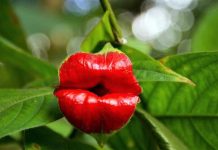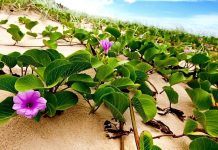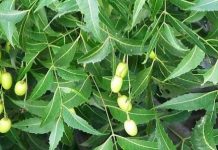Family: Portulacaceae
Synonym:Portulaca olitoria Pall.
Bengali/Vernacular name:Nune shak,Boronunia, Nune, Lanya, Ghee klom, Kulfi.
Tribal name: Tonkami (Chakma), Kaing dikdong (Chak), Bakchen (Pangkhoa), Tee-jey-shey (Rakhaing).
English name: Common pursaline, Garden pursaline.
Description of the plant: An annual, prostrate, succulent herb; stem up to 30 cm long, reddish, quite glabrous. Leaves fleshy, flat, oblong-obovate, 1-2.5 cm long, with obtuse apex and wedge-shaped base. Flowers yellow, few together, in sessile terminal heads. Fruit a capsule, ovoid.
Plant parts used: Leaf.
Herbal uses: Curry prepared from the plant is taken for constipationtreatment.
An extract made with the plant is used for gargling thrice a day for three days to treat sore in mouth.
Pounded leaves and stems are used for tumours, swellings, bruises, gout, and erysipelas remedy.
Leaf juice isused for remedy of dysmenorrhoea, dysuria, dysentery, and for expelling worms.
Decoction prepared from the plant is taken twice a day until the dysentery is cured.
The plant is used for the treatment of type-II diabetes, asthma, stomachache, headache, and snake bite.
Paste prepared from the leaves of the plant is used to treat burns, cuts, and wounds.
Decoction made with the leaves of the plant isused as a wash for skin diseases.
The crushed plants or juice can be applied directly to the skin to treat insect stings, sores, acne, and psoriasis.
Distribution: The species is found throughout the country.














